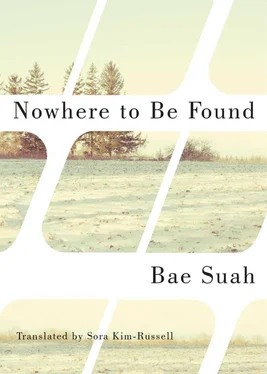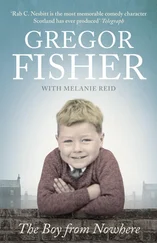The lecture would have gone on for three straight hours and ended with everyone turning in the homework. Since I wasn’t a student, I would have torn out a piece of notebook paper and written this note for the instructor instead:
I sat in on your lecture today. I kept telling you I was too busy to go, so you probably didn’t know I was there. To be honest, it was hard to follow. I’ve never taken any sociology classes or anything else like it, so of course it was new to me. I must confess that I was never a good student. You said you think you saw me last autumn when the fall semester was starting; that must have been at the tea party we held in the office to kick off the new semester. Since I don’t know what any of the part-time lecturers look like, I don’t remember meeting you. I’ve worked here for less than a year. I’ll probably change jobs soon. I’m not a full-time employee — just a temp on a one-year contract. I don’t know if you’re teaching criminal sociology again next semester, but I don’t think I’ll be running into you at school anymore. Finals are next week, and then it’s vacation. Winter is already here. Every time winter rolls around I find myself longing for things. A warm home. A heavy blanket. A wool sweater. A soft, light winter coat (that I can’t afford). A kind word when times are tough. White snow falling on this dirty city. Stepping into a phone booth set in the middle of a street like a stage prop. A secret phone number in my hand that I can call at that very moment. The snowy night so quiet it seems to be holding its breath. Listening to “Stairway to Heaven” on repeat while waiting for a bus that never comes because the snow is falling too heavily and the traffic has come to a standstill.
It feels strange to have attended your last lecture and to write what will be my last and only letter to you. At any rate, you and I have never knowingly met. And though we might one day a long time from now cross each other’s paths on the subway or at someone’s funeral or at a highway rest stop, we won’t recognize each other. It could indeed happen. For all we know we might even hold hands one day at a demonstration.
I’m not a member of any pacifist groups that denounce any and all antipersonnel weapons designed to hurt and kill people (and I don’t believe you are either), but if I were to receive an invitation to one of their demonstrations, I would most likely cancel any unimportant plans I had in order to go (and I believe you would too). The people who go to those things cancel any unimportant plans they might have in order to attend, either alone or with family. There would be so many people that you and I could rub shoulders without realizing it. Everyone would clasp hands and form a human chain from one end of the city to the other. Human beings are capable of becoming perfectly pure at some moment in their lives. It doesn’t matter if they’re royalty or literati, middle class, working class, or the lowest class. For many people that moment must be the moment when they are clasping hands with each other. Memory finds its way back through blood, through body heat. Right at that moment.
But now is not that moment. Right now doesn’t mean anything at all.
When I got home from work, I opened the kitchen cupboard to take out a loaf of bread and found a bottle of alcohol. My mother had started drinking again. I thought about getting mad at her but gave up on the idea. I must have been too tired. Getting drunk was her choice, as were her boozy-breath drunken ramblings that I hated listening to. Since her benders weren’t that frequent, I could put up with this one for a little while. My mother didn’t seem to care at all how badly she stank, or how ugly the whites of her eyes were, yellowed from the havoc she’d wreaked on her liver. She probably didn’t remember anymore, but a long time ago, she’d won a Miss Cambison Ointment pageant. She’d stood onstage in the kind of bathing suit you might see on female divers and fluttered the false eyelashes she’d glued to her eyes. But now, it was comical to associate that memory with the mother who was standing in the kitchen, giving me the side-eye, with red marks on her cheek from the pillow and wearing ragged, dirty pajamas.
“What’re you looking at?” she asked.
Tired of her gaze, I made toast and ranted inwardly: You’ve been home all day. The least you could have done was make dinner. My brother thinks the kitchen is no place for men, and my little sister is probably eating instant noodles with her friends at school. When my brother saw there was no dinner, I bet he crinkled his face into a smile and went hungry without complaint.
“No dinner. My brother must be starving,” I said.
“I had to go back to work at the hospital because of him.”
She forced her lipsticked mouth, which looked crumpled and crushed into a smile. She’d worked as a nurse before she started drinking. It was dirty work, too awful to describe. She did the kind of work that not even the patients’ own flesh and blood would do for them. My brother had always felt guilty about the fact that she had to do such work, and when she lost her job because of her drinking, he said it was better that way.
“What happened?”
“He needs more money for Japan. I don’t know why it’s so complicated. I went to the hospital to see if they had any work for me.”
“As if they’d have work for someone who drinks as much as you do.”
“I don’t drink. I told you I quit. I’m not lying.” She shifted her eyes around nervously as she protested. “They said they’re short on people lately and that I could start tomorrow. But even with an advance it won’t be enough.”
“How much more does he need?”
“A million won .” She let out a sigh.
“What he’s made so far doesn’t cover it?”
“What do you expect? He didn’t go to college, he has no skills, and his father and I are no help. Of course, he has no money to start a business of his own. He has an opportunity to earn money in Japan, but he doesn’t have enough to get there, and there’s no one he can borrow from.”
“Do you ever worry about me or Mia as much as you worry about him?”
“You got to go to college,” she said angrily. “Don’t act all high and mighty just because you give me a little money to live on. You can barely make ends meet with that tiny paycheck of yours. The kids you went to school with are all working in banks and investment firms. They’re making good money. But you make less than half of what they make, and still you complain all the time about how tired you are, and you make us all walk on eggshells around you. You owe me! Do you know how expensive it is to raise kids? Don’t even think about leaving this house before you’ve paid it all back to me. You’ve got a long way to go.”
The woman who called herself my mother opened her mouth wide and the reek of alcohol floated out, as usual. I put down my half-eaten toast and went into my room. For a moment, I considered whether they could rent my room out and make a little money that way. But the house was so old and dirty that there was no way they would ever find a tenant. My mother continued to yell at me from the kitchen.
“I didn’t think I’d be stuck living this way either! You think you’re so different from me? There’s no avoiding it — not once you’re old and broke. You’ll turn out the same way. You better remember me as I am now, because you’ll turn out exactly the same. Nothing will ever change!”
After my mother’s voice faded, I heard the kitchen cabinet open and the sound of alcohol pouring into a glass. She gulped it down. After a few minutes of silence, I heard sobs coming from Mia’s room. My little sister was crying.
Читать дальше












